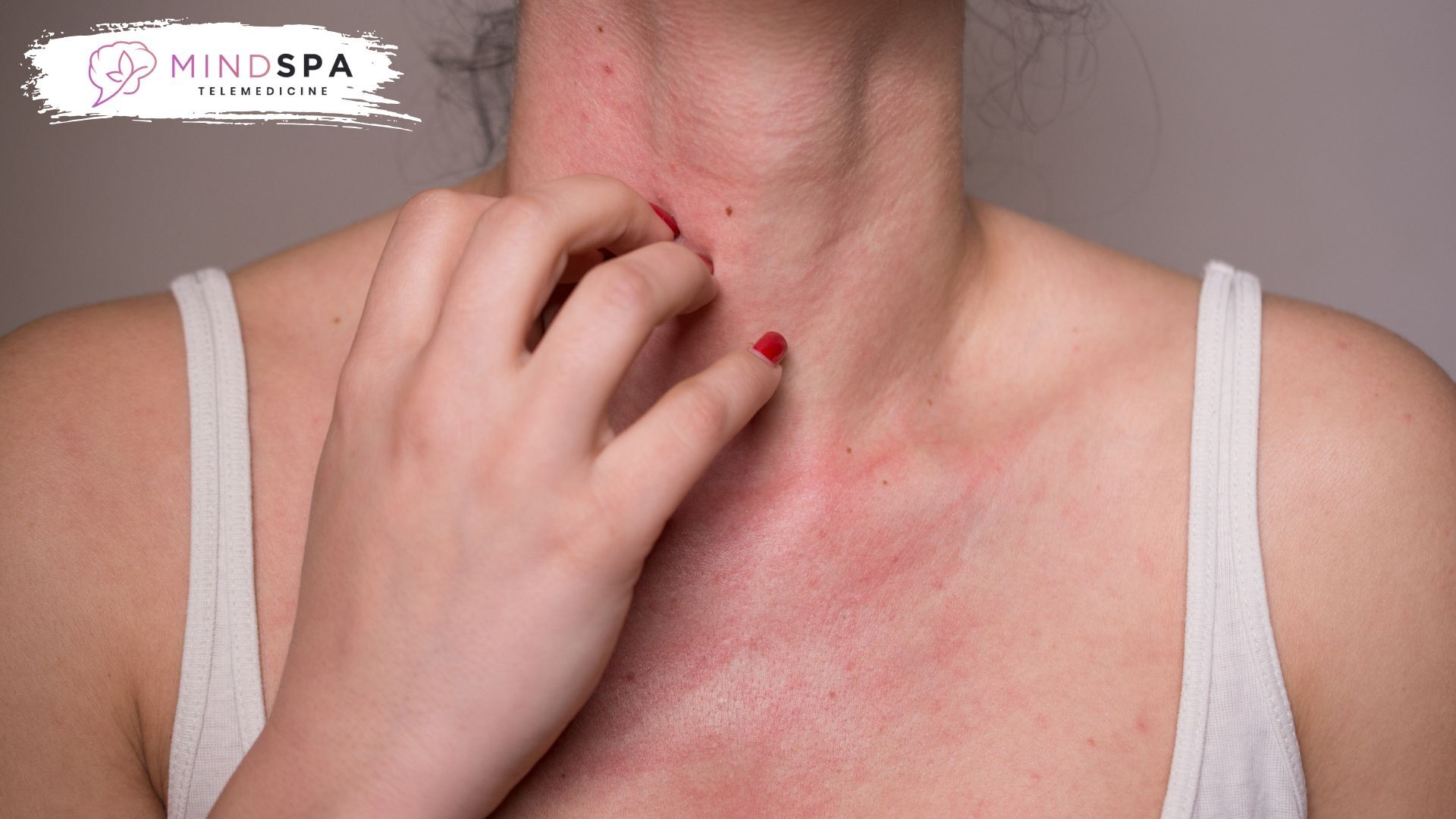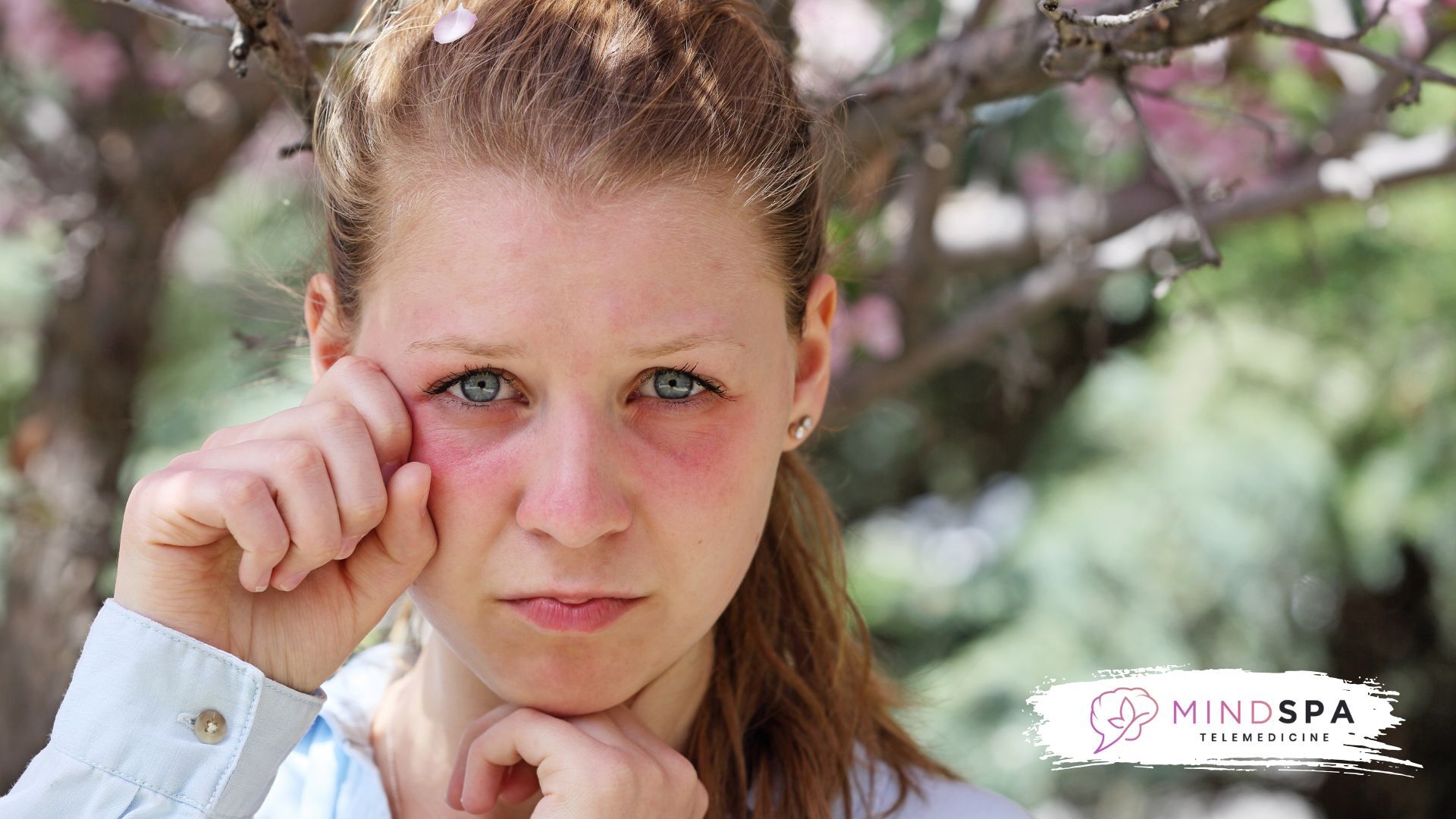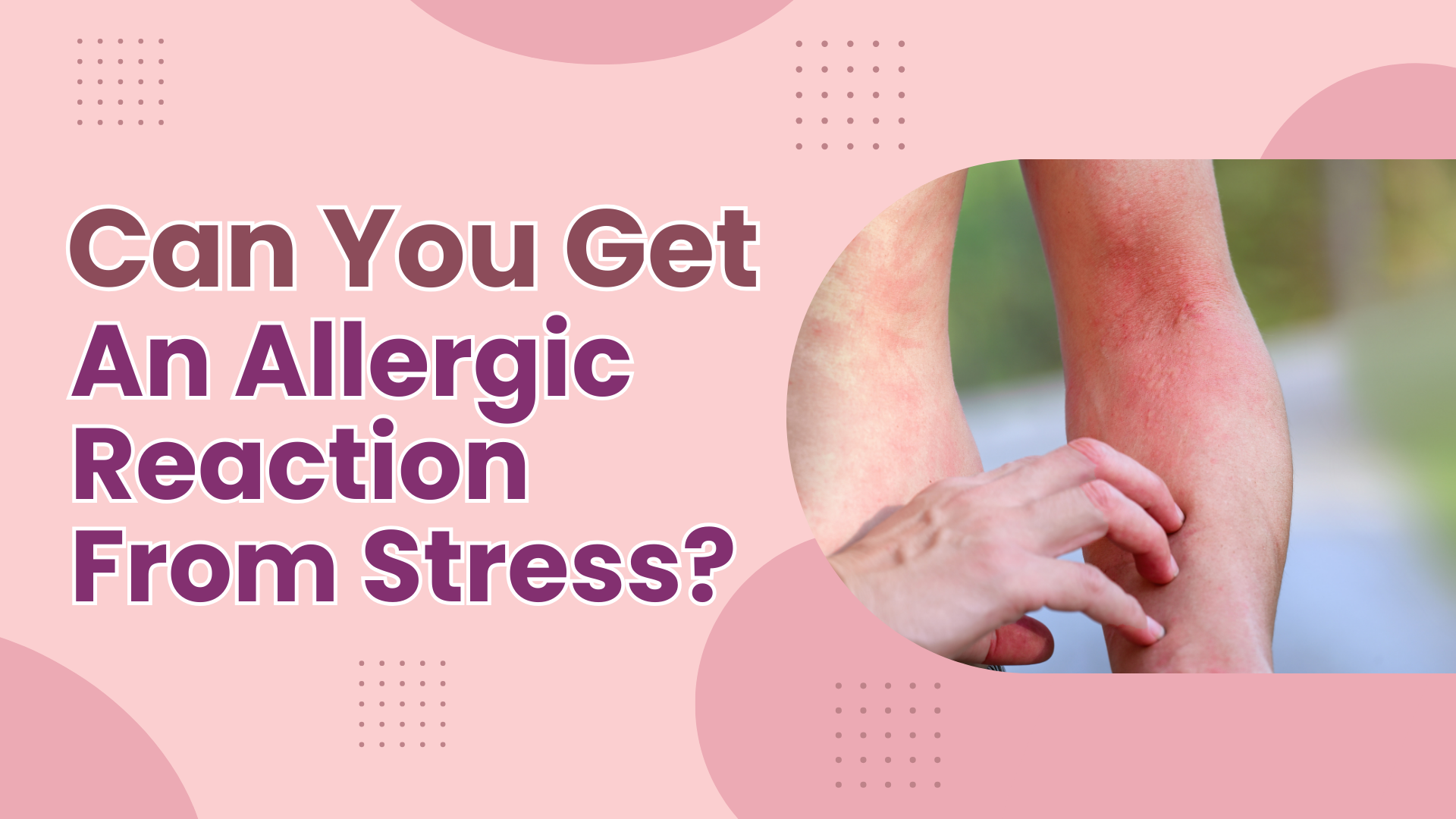In December 2023, Gallup conducted a poll that showed that 49% of adults living in the United States often feel stressed. This showed that the level of stress is growing over time from 33% in 2003. Occasionally, everyone feels stressed, and when it happens, it affects your emotional health. Aside from this, stress also causes physical symptoms like rash, which might increase stress.
Aside from fatigue, headaches, high blood pressure, and skin rashes are other common symptoms of stress. However, this isn’t a cause for concern. According to this study, about 20% of individuals of all age groups usually experience hives at some point. And some studies have shown that women have a higher chance of being affected than men. Though stress doesn’t cause hives, it can trigger hives in people who have them.
In this blog, we will explore the relationship between allergies and stress, so individuals can properly answer the question of can you get an allergic reaction from stress.
What Is a Stress Rash?
A stress rash is a skin reaction triggered by stress. When individuals are under stress, they can get hives or might get an aggravation of skin rash they already have. The American Academy of Dermatology states hives, also called urticaria, are itchy patches or bumps varying in size and appearing on the body. In a 2021 Dermatology Practical and Conceptual study, experts explained how stress affects the neurological, immune, and endocrine systems. For instance, stress can cause skin inflammation, resulting in stress-induced eczema outbreaks or psoriasis.
However, irrespective of the stress rash you are experiencing, you’re not alone, they are quite common. For instance, in a 2018 study, researchers investigated the relationship between itch and stress in female participants. The study considered the role of stress in chronic hives. Not only can it aggravate the condition, emotional distress also lowers itchiness threshold. Put differently, severe stress can make you feel intense itchiness.

Can Stress Cause Allergies
According to this study, it is not yet possible to say that chronic stress can cause allergies. However, several studies suggest evidence that in genetically susceptible people, stress might cause an allergic disease and also complicate an existing allergy. Other studies have shown the relationship between allergies and stress
- Children having asthma and exposed to enhanced stress in their early childhood have a higher chance of developing allergic asthma.
- When in high stress, many individuals experience an eruption of allergic rhinitis, eczema, and asthma.
- Lastly, stress hormones found in the blood could worsen nasal allergies.

The relationship between stress and allergy symptoms
Stress is the body’s natural way of responding to any potentially dangerous situation. The adrenal gland produces cortisol, resulting in an increase in blood pressure, heartbeat, and blood flow increase to the brain. This can cause high blood pressure, depression, anxiety, heart disease, heartburn, and other health problems. Increased cortisol and chronic stress negatively affect the cells in the immune system, resulting in an allergy.
Additionally, aside from cortisol, the body releases histamines under stress, and the increased histamines in the bloodstream can aggravate allergy symptoms. Therefore, stress can trigger an allergy symptom, and if you have allergies, it can also result in stress. Therefore, it is important to manage both to ensure you keep the symptoms under control. Consider opting for a mind spa, as this can help you reduce stress and ease allergy symptoms.
What Causes a Stress Rash?
Stress rash usually results from the immune system reacting to an allergy, which is often emotional stress. This is due to the fact that stress causes the body to release adrenaline and adds to hive development. When an individual frequently feels stress rash, it is best to consider MindSpa, as this can allow the body and mind to rest. Stress is an environmental trigger, and some triggers for it could include getting married, starting college, challenging promotions or new jobs, anxiety due to hard times, or poor sleep hygiene and insomnia.
Aside from these, having a history of depression, anxiety, bipolar disorder, or other mental health conditions can cause chronic stress, resulting in stress allergy hives. When stressed, the body flare-ups due to existing skin conditions. This occurs because the body releases an extra chemical like neurotransmitters and neuropeptides when stressed or anxious. Stress can also result in increased immune cells, causing autoimmune reactions and hives.
Can stress cause sneezing and runny nose
Stress does not only cause physical symptoms. In certain cases, it can result in behavior that leads to nose problems. Let’s take an example. Certain people develop a tic (uncontrolled motor movement) when stressed, requiring them to rub, squeeze, or rub their nose hurts as a response to stress or anxiety.
This causes nasal pain since the rubbing will be too hard for the nose. There are also others who constantly touch their face when they are stressed, and this can lead to other problems. For instance, acne around the nose might be common in people with anxiety since they spend the majority of their time with their hands on their nose (an area with many bacteria). Therefore, you can see that the nose is more affected by stress than you initially thought.
It is important to remember that there isn’t any way to confirm if your nasal problems are due to colds or allergies. So, until you deal with your stress, ensure that you treat them like other health conditions. Consult with your health provider and get tips on what you should do for your specific nasal issues. Additionally, you can consider stress management through MindSpa.

Conclusion
Stress can cause hives or rashes and even worsen existing skin conditions. However, in isolation, mild stress doesn’t have much impact on the body, but chronic and frequent stress can have adverse side effects.
It is important to consult a mental health professional to treat stress-related skin conditions and consider stress management techniques. If you intend to learn more about allergic reactions from stress or consider the best treatment for stress, this website answers your questions.
Frequently Asked Questions
How to remove stress rash?
To remove stress, you can consider antihistamines. You can also manage stress using techniques like MindSpa to reduce symptoms and prevent more stress rash.
What is the duration of a stress rash?
Stress rash usually lasts for 30 to 60 minutes. However, hives can last for a couple of hours or days. It is best to consult with a doctor if your rash persists for long. Seek fast medical help if you experience a rash alongside other symptoms of allergic reactions.
Does stress cause skin problems?
When under stress, the glands produce more oil. This can cause acne in individuals prone to outbreaks. Stress also triggers skin conditions like eczema and psoriasis, causing the condition to aggravate.

